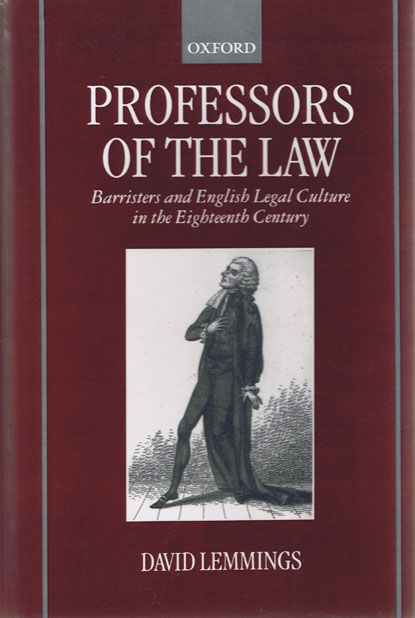We will be closed from 5pm Thursday 17th April for the Easter Bank Holidays, re-opening at 8.30am on Tuesday 22nd April. Any orders placed during this period will be processed when we re-open.

What happened to the culture of common law and English barristers in the 18th century? In this 'sequel' to Gentlemen and Barristers: The Inns of Court and the English Bar, 1680-1730, David Lemmings anatomizes the barristers and their world and also explores the popular reputation and self-image of the law and lawyers in the context of declining popular participation in litigation, increased parliamentary legislation, and the growth of the imperial state.
The author shows how the bar survived and prospered in a century of low recruitment and declining work, but failed to fulfil the expectations of an age of Enlightenment and Reform.
By contrast with the important role played by the common law, and lawyers, in 17th-century England and in colonial America, it appears that the culture and services of the barristers became marginalized as the courts concentrated on elite clients, and parliament became the primary point of contact between government and population.